This violent beginning to Kazuchiyo’s tale was not an uncommon one for its time. For nearly a century the country of Shuyun had been embroiled in civil war, as the great samurai lords vied for land and influence amongst themselves. Emboldened by the lack of any meaningful leadership from the ailing shogunate, they sent thousands of men to their deaths over petty slights as often as grand ambitions. For a young boy to lose his father, three of his brothers, and any claim to his ancestral home was no greater tragedy than any of the other similar misfortunes spread out over decades of reckless arrogance.
So regretfully, the near complete obliteration of the Tatsutomi clan in the autumn of 1482 disturbed very little of the natural order of things, for a time. Lord Aritaka claimed their principle castle as his own and instilled his younger brother as its master. Kazuchiyo’s mother and youngest brother were ejected and forced into religious exile in a remote mountain temple. Families who had once sworn undying loyalty to the dragon banner bowed to their new lord. The peasantry noticed no difference at all. What was one samurai lord traded for another, other than a new emblem on the tax collector’s purse?
As for Kazuchiyo, he was taken deep into Sakka Province, to the castle town of Gyoe he had only ever heard stories of. Its white plaster walls and gold-tipped eaves shown like a beacon even in the cloudy gloom. The main keep, which stood four stories tall upon a great stone base, was sunken into the mountainside and heavily fortified, the sprawling town below interspersed with thick barriers and baileys to confound invaders. Built by Lord Aritaka’s father, the castle had never been breached by the enemy—unless one agreed to count Gyoe’s own lord personally conveying Kazuchiyo across the threshold.
Kazuchiyo spent his first day at Gyoe in a silent haze. He was cleaned, and dressed, and fed, two of Aritaka’s finest always at his side with hands on their katana. Whether they were diligently preventing his escape or his suicide, it mattered very little, as he followed their instructions without question. He listened to the rain on an unfamiliar roof, concentrating on its monotony to drown out memories of the death-littered field. Listening for a distant voice.
They put him in a small room with a thick futon, and stood guard while he allowed exhaustion to drown him in sleep. By morning he was sweat-drenched and shivering from dreams he couldn’t remember.
A new pair of soldiers came to fetch him, leading him up to Lord Aritaka’s audience chamber. Kazuchiyo’s first step onto the tatami put a chill through him, and he lifted his head to stare back at the assemblage of generals and advisors filling the room. They were easy to tell apart, but all viewed him with disgust and mistrust, their eyes boring into him as surely as arrows. He did not even have scavagened armor to protect himself with, but he had no choice but to continue forward, submitting to their weasel-eyed judgment.
At the far end of the chamber sat Lord Aritaka himself in handsome robes, and beside him again was the long-faced woman from the field. Kazuchiyo had not laid eyes on either of them during the several days of journey from Shimegahara, and to see them calm and unscarred from the battle churned his stomach. Though he managed to walk down the line of their audience, by the time he knelt before the bear he was shaking.
What could he have done? His family had been destroyed. He was trapped in the enemy’s lair. Even if they had given him a sword to cut his belly open, his hands were too weak to wield it. So Kazuchiyo bowed his head to the floor before his father’s killer, and waited.
“Kazuchiyo,” said Lord Aritaka, his deep, coarse voice filling the chamber. “I trust you have not been mistreated since your arrival.”
“No, sir,” replied Kazuchiyo, not that he could have said otherwise, if it were true.
“Good. You may be my hostage here, but you are also the eldest remaining son of a man I much respected. I will not tolerate your mistreatment.”
The surrounding advisors remained still and silent. It reassured Kazuchiyo extremely little, but he said, “Thank you, sir.”
“Do you know why I’ve kept you alive, boy?”
Kazuchiyo’s heart thundered. He had expected to be tested, but in his numb exhaustion had yet to formulate any strategy. Cautiously he started to lift his head, hoping a glimpse of the man’s face would give him some clue. But before he could raise his gaze that far, the woman beside him flicked her wrist to draw his attention, and tapped the floor with two fingers. He quickly returned to his prostrate position.
“I am a hostage,” said Kazuchiyo. “You can use threat of my death to prevent my father’s vassals from rising against you.”
Lord Aritaka grunted, his breath huffing. “You hold your father’s vassals in high regard?” he retorted. “You trust that if they did have designs against me, they would let your death stand in their way? They would only need your younger brother, if they truly wished to raise the dragon banner again.” He shifted, the rustle of his robes making him sound larger than he was. “Do you know why it was your father lost?”
Kazuchiyo clenched his fists against the tatami and hoped that Aritaka would not see him shake. The image of his father slumped in the rain was so heavy on his eyes he could not have seen anything else even if he had lifted his head. “The scout,” he said, hating that he couldn’t keep the hurt out of his voice. “The one who came to tell us that Master Yatamoto betrayed us. He was lying. The vanguard had already been defeated by the time he came to us.” His shoulders ached as he tried to sink deeper into himself. “You lured my father and his men away from the temple so you could finish him off.”
“That is perceptive of you,” confirmed Lord Aritaka.
Kazuchiyo licked his lips, but his mouth was dry. “It wouldn’t have worked if not for the rain. If Father had had accurate information from the front—”
“It wasn’t the rain that killed your messengers,” Aritaka interrupted him. “Yatamoto didn’t pledge allegiance to me on account of the weather, nor did Waseba and his brothers for that matter. The Tatsutomi army was doomed to fail.”
Kazuchiyo had yet to reconcile to the knowledge of even one of his father’s bannermen betraying him; that there had been several was unfathomable to him. He tried to remember if he had seen any familiar faces upon entering the chamber, but the inside of his head had begun to melt and smear, and he couldn’t be sure of anything.
“Your father’s instincts for war had been dulling for a long time,” Lord Aritaka continued. “I thought at first that I alone could see it, but clearly that was not the case. You should see this as a valuable lesson, boy. No daimyo can go on without the confidence of his generals.”
Kazuchiyo thought instead that some generals were not worth having confidence in. Yatamoto, Waseba, and anyone else who would betray their lord in his moment of need was a coward and nothing more. Even Aritaka was a coward for having courted them. He would have said so, except that when he trembled, he remembered his father’s hand around the spear. “Lord Aritaka,” he said, only when he could be sure this weakness would not be apparent in his voice. “Why have you kept me alive?”
Aritaka did not answer immediately. His assembly grew tense at Kazuchiyo’s back as they, too, waited to hear his mind. Kazuchiyo stewed in apprehension and began to wish he’d had the strength to meet his death on the field. And then Aritaka spoke.
“Your life is a mercy I grant to your father,” he said, with righteousness Kazuchiyo hated him for. “We may have been rivals, but he was a man of great valor, once. I held him in such regard as I have very few others. And in light of that, I have decided to accept you as my son. You will take a portion of my name and be trained into a mighty warrior, as your brothers were before you. It was your father’s last request.”
“Liar,” Kazuchiyo whispered into the floor. His memory was a muddied hell but his father’s face twisting toward him in anguish would never leave him.
“Lift your head, boy.”
Kazuchiyo flinched, but he obeyed. He was not proud of his composure in that moment, certain that Lord Aritaka could see his frustration and pain etched very clearly in his face. Aritaka’s own countenance was a rough blank of emotion, no hint of the nobility of greater lords. He was only an animal struggling to hide his greed, and they regarded each other silently for several long minutes while the generals watched uneasily.
“I keep your father’s swords in my chamber,” said Lord Aritaka. “If I gave them to you now, would you cut me down?”
Kazuchiyo wound his fists in his hakama. For his father’s sake he wanted to swear that he would. He had long admired the red-corded blades that had hung from his father’s hip as long as he could remember, and he imagined the katana in his grip, the weight and the strength of it guiding his arm. But then he thought of the field. He imagined Aritaka’s blood gushing down over his hands, his body collapsing to join corpses laid end to end like tatami mats, and his stomach turned. Even with those prized weapons at his side, he knew he could not have struck his enemy down. Not until he became stronger.
“No,” said Kazuchiyo. “I would not.”
“And why not?” Aritaka prodded.
Kazuchiyo swallowed back bile. “Because I would not want to dishonor my father’s last request by letting any harm come to you, my lord.”
Lord Aritaka regarded him a while longer, and then he grunted. “Don’t lie to me, boy,” he said, but then his lip turned up in an appreciative smirk. “At least not until you’re better at it.”
Kazuchiyo bowed his head again to the floor. “Forgive me, my lord.”
“No matter. I wouldn’t expect any less of you so soon.” Lord Aritaka resettled. “You are dismissed. Your age ceremony will take place in three days time. As my son, your future as well as your mother’s and younger brother’s will be secure. Take this time to consider the kind of man you will be.”
“Thank you, Lord Aritaka,” Kazuchiyo said, the words acid on his lips.

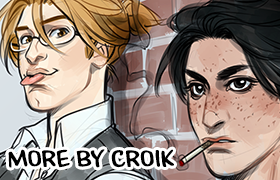
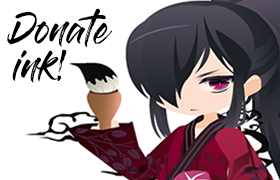
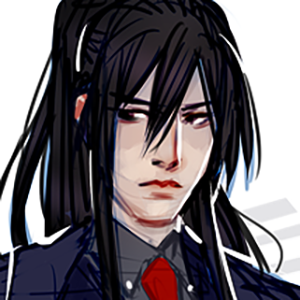








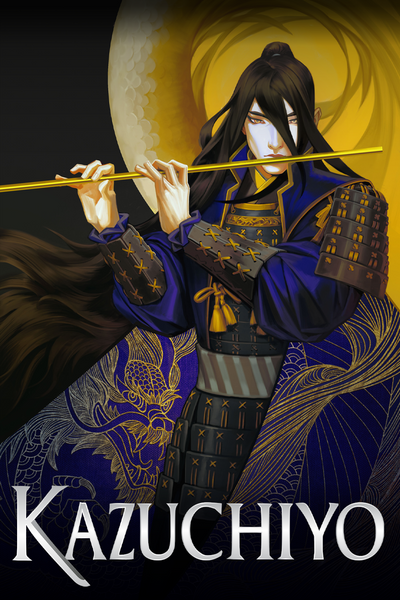
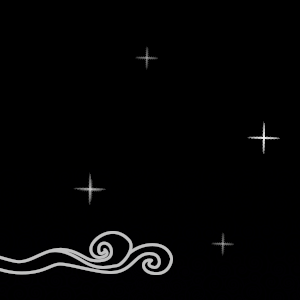
Comments (5)
See all